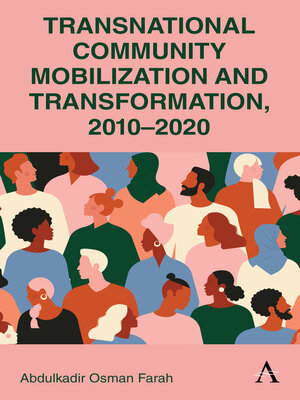
Sign up to save your library
With an OverDrive account, you can save your favorite libraries for at-a-glance information about availability. Find out more about OverDrive accounts.
Find this title in Libby, the library reading app by OverDrive.



Search for a digital library with this title
Title found at these libraries:
| Library Name | Distance |
|---|---|
| Loading... |
The world is increasingly complex and ever changing. One of these changes involves the increasing trans-nationalization by diverse sociopolitical groups/institutions, including the state, the corporate, as well as different transnational communities, including professionalized social groups. Such groups also include transnational communities with migrant-refugee history and background. These communities often link their local host environments with their homeland origins in multiple ways. They often do such activities through diversified, transnationally situational and context-based sociopolitical engagements and mobilizations toward and with multiple social, political, and economic actors. Their main aim and purpose is to achieve and maintain recognition and dignified lives as individuals, groups, as well as communities. Through resisting exclusion and trying to help the excluded, they often approach transnational issues with cautious responsibility and cooperation as well as collaboration with multiple public, civic, and private actors.
|This book contends that the struggle and perseverance of transnational communities occur within and through at least three interrelated dynamic socio-political processes. The first is the pattern in which transnational communities mobilize to access public opportunities. This occurs when communities deal with cross-border and cross-national trajectories. The second relates to transnational community civic mobilization in relation to the prevailing, as well as emerging, socio-political conditions and situations within host and homeland societies, including community encounters and connections with like-minded civic communities. The third concerns immediate local community mobilizations in response, as well as an extension, to existing and emerging local socio-political encounters and connections. Therefore, this work proposes that transnational local, national, and transnational mobilization takes place within the dynamic horizontal processes of mobilizing communities in simultaneously expanding community horizons while preserving community well-being in multiple interrelated contexts.
More significantly, current studies drawing on transnational political sociological frames, as well as public sociopolitical scholarly debates, often consider the relationship between the state and society as inherently hierarchical and oppositional. Such relational and hierarchical conceptions of state–society interactions insist on the idea that formal state structures dominate and often subordinate informal community-oriented socio-political platforms. These top-down institutional priorities and actions limit the horizontal dynamics of transnational communities, including community attempts to balance local, national, and transnational encounters and connections, while avoiding state–society as well as local, national, and transnational extremes. Modern scholarship, thereby, departs from an overemphasis on class distinctions of society, as well as potential class-based interest group mobilizations, as the basis for diverse struggles and perseverance within the dynamics of state–society relations.







